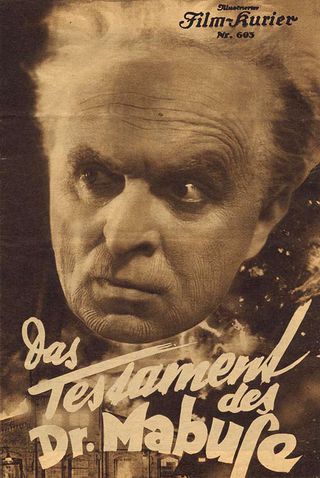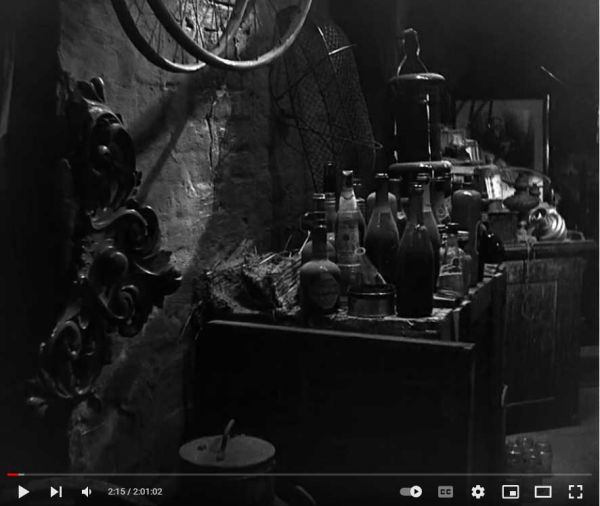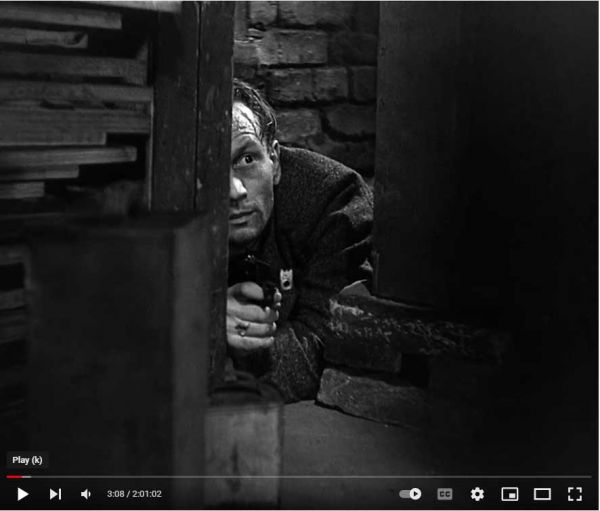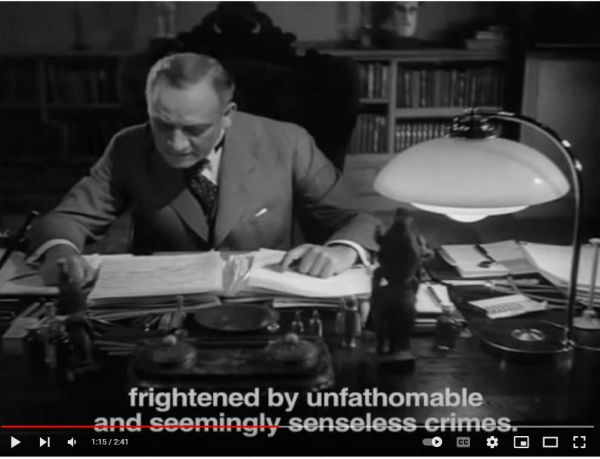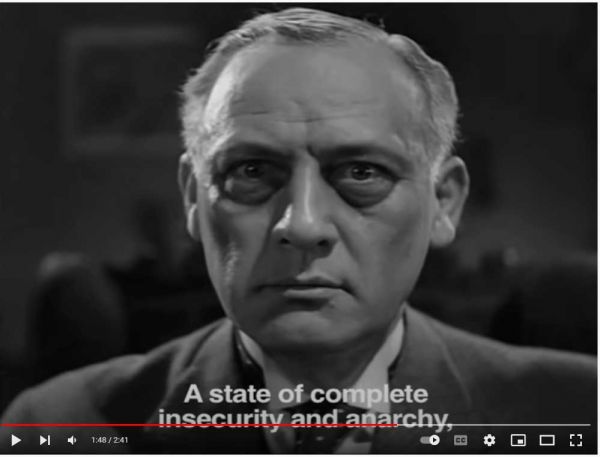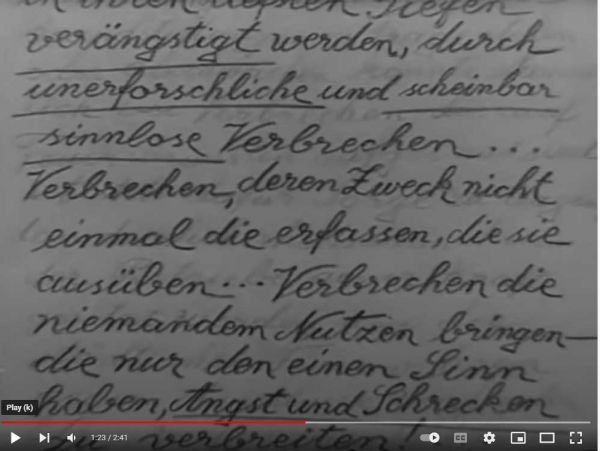Fritz Lang and The Testament of Dr. Mabuse
Everyone ought to watch The Testament of Dr. Mabuse at least once. The Nazi Propaganda Chief Joseph Goebbels saw it once and immediately banned it from the screen, because it "showed that an extremely dedicated group of people are perfectly capable of overthrowing any state with violence." Maybe the intentions of that "dedicated group of people" reminded Goebbels too much of the Nazis' own intentions; but he also liked Lang's movie and kept a copy to show close friends. He must have thought the film made good art, bad politics.
Thanks to the Nazi ban, no one else actually saw the film until after the War, when archivists went to work assembling the degraded, piecemeal footage and restoring it. I have read reviews by critics from both then and now. Their decidedly mixed reaction to such an obivous classic really surprised me.
The critics wrote that the movie basically predicts the Nazi take-over of Germany. The critics had a sense of the movie's intentions, but not very clearly. In fact, I will climb out on a limb and say that they did not get the movie's meaning. Goebbels understood it better than they did. The critics work for newspapers and magazines. Dr. Joesph Goebbels, the Ph.D. literary and art connoisseur engaged in a political coup, understood the film in context.
The counterfeiters' lair
Testament begins with music that segues into the thudding racket of an illegal printing press located in a hide-out for counterfeiters. The viewer gets a claustrophobic view of a musty, cluttered storage-room. Jars and bottles, perched precariously on a bureau, jiggle with each thud. The hanging lanterns overhead jerk up and down, in time with the bottles.
Police-informant Hofmeister
Police-informant Hofmeister waits behind a chest, frantic about the risks he has undertaken in order to expose the counterfeiters. They wait until he departs the premises, then try to murder him. The only information that Hofmeister can sell the police, up to this point, is that the counterfeiters work for a Doctor Mabuse. But how can that be? Doctor Mabuse has lived in an insane asylum for years, cared for by a Doctor Baum.
Dr. Baum studies Dr. Mabuse's testament
Baum also teaches at the local medical college and lectures occasionally about Dr. Mabuse's case. He tells his class that poor Dr. Mabuse sits on his bed all day long and scribbles down his last will and testament, a rambling collection of images and incoherent text.
Dr. Baum entering a trance
Gradually, Dr. Baum makes sense of Mabuse's unhinged scribblings. He tells his class that Mabuse is a totally unrepentent criminal who, even now, concocts criminal schemes. Late one night, in the darkness of his office, Baum realizes the full extent of Mabuse's criminality. He doesn't want only to commit crimes. He wants control of the country and has figured out the best way to do it: Scare the poor citizenry into submission!
A sample of Dr. Mabuse's written testament
"The souls of the people must experience deep and unsettling anxiety from senseless lawlessness," Mabuse writes. "The perpetrators themselves have no insight into the crimes they commit. The only goal of such lawlessness is to spread terror and fear amongst the people."
At this point, Baum stops reading and enters a trance. The luminous, spectral figure of Mabuse sits opposite him and continues to read his testament in a whisper: "The state of things, where insecurity and disorder overwhelm everyone, leads to rule by criminals." Among other things, Dr. Mabuse wants to sabotage the operations of the banks and undermine the currency. Banks and money are like grocery stores and groceries. We can't go long without them. Just a few days without them will cause a breakdown of the society.
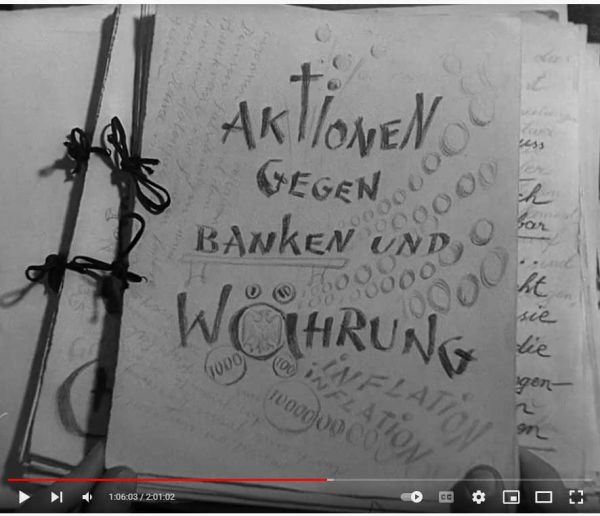
From Dr. Mabuse's written last will and testament.
The Testament of Dr. Mabuse movie does not cover all the bases, but it gives the viewer a sense of the reasons Goebbels's removed it from circulation. The only point the movie misses is that the Nazis themselves instigate the terror and disorder, in order to intimidate the populace into submission and make it easier to subjugate.
We are not so different from the pre-Nazi Germans. Forces in our own country want to intimidate Americans into submission and make them capitulate to fear and disorder. No one should overlook the parallel. The only way to fend off an autocratic regime is to maintain law and order and to give the populace peace-of-mind about its future.

